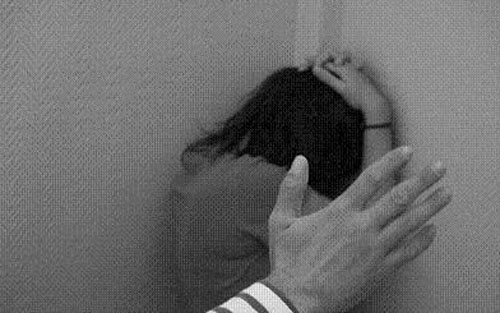When it comes to domestic violence, some of the bruises are on the inside. Physical, emotional, or sexual abuse by an intimate partner can have a profound effect on your physical and mental well-being. The abuse can even trigger clinical depression, a serious mental health disorder.
Abuse is traumatic. Living through that trauma can affect you in many ways. You may feel hopeless or sad about your life. Perhaps you’ve started to feel detached from others, including loved ones. The emotional burden can make it seem as though you’re unable to make a decision or concentrate on anything. When you live with these symptoms for more than two weeks and they impact how you live your life, you may have depression.
The Link Between Domestic Violence and Depression
It’s clear that being the victim of violence plays a role in a woman’s mental well-being. The negative effect is strong enough that at least one researcher refers to domestic violence as the “hidden epidemic” linked to mental health conditions. Women who are in violent relationships have nearly twice the risk of depression, according to a review of studies examining more than 36,000 people.
In addition to the stress of abuse itself, other factors may contribute to depression symptoms in victimized women. For instance, the severity of abuse has been linked to the severity of depression symptoms. New mothers in abusive relationships were also found to be twice as likely to suffer postpartum depression. Genetics, alcohol abuse, and serious illness can all contribute to a higher risk of depression in women living in a violent relationship.
It is also possible that a woman who is depressed is more likely to become the victim of abuse. The large review of 36,000 people found that women who struggled with depression had almost double the risk of becoming victims of domestic violence. It’s a finding that suggests some women may struggle with a cycle of depression and domestic violence that can be hard to escape from.
Treatment for Depression in Women
Clinical depression is a medical condition that is likely caused by an imbalance in brain chemistry. Most antidepressants work by preventing neurotransmitters, or chemical messengers, from being absorbed by the body. Because more of these chemicals are available, the brain can better regulate functions, including mood levels. Antidepressants are an effective way to improve symptoms, allowing you to feel more like yourself.
Medication alone is not enough, however. Therapy is also critical for helping ease depression symptoms. Find a therapist experienced in treating victimized women. Don’t be afraid to search for a therapist you’ll be completely comfortable with. For example, if the idea of receiving therapy from a man makes you uneasy, ask for a referral to a female professional.
A qualified therapist will help you examine the emotions and actions that may contribute to depression. Additionally, a mental health professional skilled in domestic violence will evaluate you for other conditions that are commonly triggered by abuse, such as post-traumatic stress disorder (PTSD) or substance abuse.
Leaving the Abuser
Breaking off the violent relationship may also ease symptoms. At least three studies have demonstrated that women’s depression symptoms were reduced when battering by an intimate partner ceased. This may be because the physical abuse acts as a stress factor that causes depression. While leaving the relationship may not completely relieve symptoms, it seems clear that removing the stress of abuse from your life may help.
In fact, research suggests that being in a violent relationship can continue to have an impact on mental health after the abuse has ended. A study of more than 3,000 women found that those who had lived through child sexual or physical abuse had higher levels of depression. This suggests that if you have depression linked to abuse you can expect healing to take place over time.
If you’re unable to leave the relationship now, give yourself some sense of control by setting up a plan for escape. Your local domestic violence program will help you create a plan. For instance, the group will provide tips for getting help or using a computer safely, without raising the risk that you’re being monitored. In addition, domestic violence programs can provide help for other concerns you may have, such as legal, employment, or financial worries.
Supportive Therapies for Depression
As the victim of violence, you’ll benefit from the support of others. Being trapped in a violent relationship can isolate you socially; experiencing loneliness and lack of support can contribute to depressive feelings. Connecting with other women face-to-face or through online support groups will help you understand that you are not alone.
If you are still in the relationship, build as much of a support system as you are safely able. Take every opportunity to connect with others outside the home. Even if joining a support group is not an option, find ways to get involved with people or activities that don’t involve the abusive partner.
Concerns About Depression Treatment
If you’re experiencing depression while you’re being victimized, you may have another concern about seeking treatment: child custody issues. You might fear that a mental health diagnosis will prevent you from obtaining custody of children. It’s a valid fear. Yet untreated depression can also cause you to act in ways that make it hard, if not impossible, to care for your kids, endangering your ability to get custody.
In addition, symptoms of depression can leave you unable to seek help for yourself or make reasonable decisions about safeguarding yourself and your family. Symptoms like poor concentration, apathy and insomnia may also make you unable or unwilling to participate in court proceedings necessary to sever ties with your abuser.
You deserve a life that’s safe and healthy. If you haven’t broken off the abusive relationship, talk to your local domestic violence center; they will lay the groundwork to get you the help you need. To manage depression symptoms, speak with a mental health professional. Please don’t wait to reach out for help.




